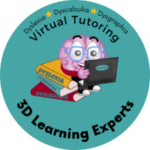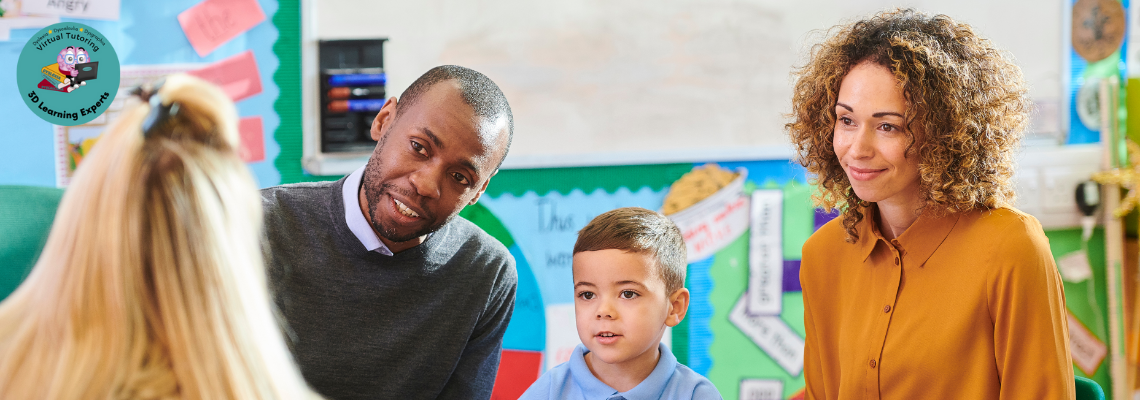Choosing the right tutor for your child can make a significant difference in their academic success and confidence, especially if they have learning disabilities such as Dyslexia, Dysgraphia, or Dyscalculia. A qualified tutor not only provides academic support but also helps your child develop skills to thrive in and out of the classroom.
To ensure you make the best choice, here are the top questions every parent should ask before hiring a tutor.
What Experience Do You Have with Children Who Have Learning Disabilities?
Not all tutors are equipped to work with children who have Dyslexia, Dysgraphia, or Dyscalculia. It is essential to ask about their specific experience and training in addressing these learning challenges. A tutor with specialized skills will understand how to use multisensory teaching methods, break down complex concepts, and adapt to your child’s unique needs.
Pro Tip: Look for tutors who have certifications like Orton-Gillingham or Barton for Dyslexia, or other relevant credentials for Dysgraphia and Dyscalculia.
What Is Your Teaching Approach or Methodology?
Every child learns differently, especially those with learning disabilities. Understanding the tutor’s teaching style can help you determine if it aligns with your child’s learning preferences. Ask if they use:
- Multisensory Learning Techniques: Combining visual, auditory, and tactile learning.
- Individualized Lesson Plans: Tailored to your child’s specific strengths and weaknesses.
- Interactive Tools or Technology: For instance, assistive devices that can help children with Dysgraphia or Dyscalculia.
By ensuring their approach is adaptable and evidence-based, you can set your child up for success.
What Are Your Qualifications and Certifications?
When choosing a tutor, their qualifications matter. Ask about their educational background, professional certifications, and years of experience. If your child has Dyslexia, Dysgraphia, or Dyscalculia, it’s important to hire someone who specializes in these areas rather than a generalist tutor.
Questions to ask:
- Do you have training in specialized programs like Orton-Gillingham?
- Are you familiar with Individualized Education Plans (IEPs) or 504 Plans?
- Can you provide references from other parents?
- How Do You Measure Progress?
Understanding how a tutor tracks and reports progress is critical. Ask them to explain how they measure your child’s improvements over time. Do they provide regular updates, written reports, or progress meetings?
Key indicators of progress might include:
- Improved grades or test scores.
- Increased confidence in problem areas.
- Better engagement and motivation during sessions.
What Availability and Flexibility Do You Offer?
A tutor’s schedule should fit seamlessly into your family’s routine. Ask about:
- Session Frequency: How often are sessions recommended?
- Location: Do they offer in-home, online, or center-based tutoring?
- Rescheduling Policies: What happens if you need to cancel or reschedule a session?
Flexibility is key, especially for busy families juggling multiple commitments.
What Is the Cost, and Are There Any Additional Fees?
Tutoring can be a significant investment in your child’s future, so it’s essential to understand the costs upfront. Ask about:
- Hourly rates.
- Package discounts.
- Additional fees (e.g., materials or assessments).
While affordability is important, remember that a highly skilled tutor specializing in Dyslexia, Dysgraphia, or Dyscalculia may come at a premium. This expertise is often worth the cost for the long-term benefits to your child.
What Happens During a Typical Tutoring Session?
Understanding what a tutoring session looks like can give you confidence in the tutor’s ability to engage and support your child. Ask about:
- The structure of each session.
- How they incorporate breaks or flexibility.
- Strategies for keeping your child motivated.
For children with learning disabilities, engaging activities and a supportive environment are essential.
Red Flags To Watch For When Choosing a Tutor
Not all tutors are a perfect fit. Be cautious if:
- They lack experience with learning disabilities.
- They don’t provide measurable goals or progress updates.
- Their methods seem rigid or one-size-fits-all.
Checklist: What to Look for in a Tutor
Before making a decision, ensure the tutor checks these boxes:
- Specialized training in Dyslexia, Dysgraphia, or Dyscalculia.
- A proven track record with testimonials or references.
- Flexible scheduling and clear communication.
- Transparent pricing and progress tracking.
Explore Our Tutoring & Consulting Services
We offer a range of specialized services tailored to help children with Dyslexia, Dysgraphia, and Dyscalculia thrive:
- Dyslexia Tutoring: We use evidence-based methods like Orton-Gillingham to build reading, writing, and comprehension skills.
- Dysgraphia Support: Our tutoring focuses on improving handwriting, fine motor skills, and written expression through customized techniques.
- Dyscalculia Tutoring: We help students overcome math challenges with visual aids, interactive tools, and step-by-step problem-solving strategies.
- Educational Consulting: Our experts collaborate with homeschool parents and schools to develop personalized learning plans and navigate IEP or 504 processes.
- Parent Training: We empower parents with the knowledge and strategies to support their child’s learning journey at home.
Take the Next Step
Choosing a tutor for your child can be vital to academic success and improved self-esteem. At 3D Learning Experts, we specialize in helping children with Dyslexia, Dysgraphia, and Dyscalculia thrive. Our experienced tutors use evidence-based techniques to build confidence and skills that last a lifetime.
Ready to find the perfect tutor for your child? Contact us today for a free consultation!

